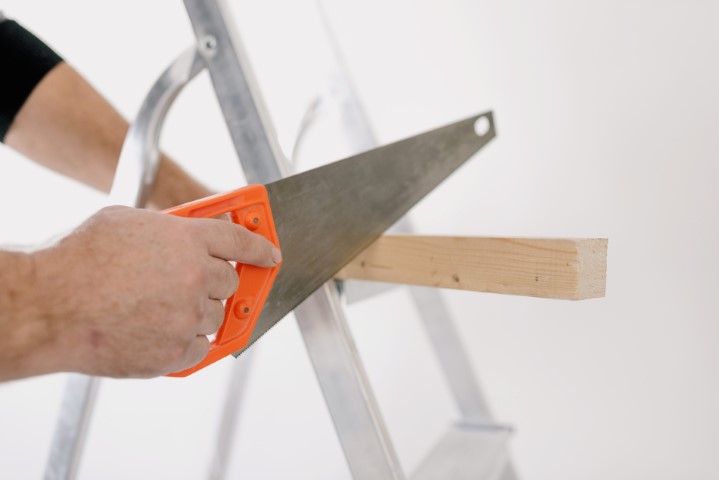Handy Man Information

There are several advantages to hiring a handyman for various tasks and projects. Here are some of the key advantages:
Skill set and knowledge: Handymen possess a diverse range of skills and knowledge across various trades. They have experience in tasks such as fixing leaky faucets, installing light fixtures, repairing drywall, assembling furniture, and more. This versatility allows them to handle different types of repairs and improvements around your home or office.
Problem-solving abilities: Handymen are adept at problem-solving. They can assess the situation, identify the root cause of a problem, and determine the most efficient and cost-effective solution. Their experience enables them to find creative and practical ways to address issues that may arise during a project.
Small-scale projects: Handymen excel at small-scale projects that may not require the specialized skills of a contractor or tradesperson. For example, if you need to install shelves, repair a broken drawer, or hang artwork, a handyman can handle these tasks efficiently. They provide a valuable service for minor repairs and improvements.
Time and project management: Hiring a handyman can help you save time and effort in managing a project. They can coordinate tasks, gather the necessary materials, and ensure that the work is completed within a reasonable timeframe. This is particularly beneficial when you have multiple small projects or tasks that need to be done simultaneously.
Safety and peace of mind: Handymen are familiar with safety protocols and best practices in their respective trades. By hiring a professional, you can have peace of mind knowing that the work is being done safely and to a high standard. They can also identify potential safety hazards and take appropriate measures to mitigate them.
Customer service: Many handymen prioritize customer satisfaction and strive to deliver quality service. They often have good communication skills, listen to your needs, and provide advice or recommendations based on their expertise. This customer-centric approach ensures that you have a positive experience throughout the project.
Cost control: Handymen can help you control costs by offering cost-effective solutions and recommendations. They can advise you on the most economical materials or suggest alternative approaches to achieve your desired outcome within your budget. Their ability to work on an hourly basis also provides flexibility in managing costs.
Building a relationship: Hiring a handyman can establish a long-term relationship with a reliable professional. Once you find a trustworthy handyman who meets your needs, you can rely on their services for future projects or repairs. This relationship can lead to better communication, understanding of your preferences, and a smoother overall experience.
Experience and expertise: Look for a handyman with a proven track record and substantial experience in the field. Consider how long they have been in business and whether they have worked on projects similar to yours. Experienced handymen are more likely to have encountered a wide range of repair scenarios, enabling them to handle various tasks efficiently.
Skills and qualifications: Verify the handyman's skills and qualifications relevant to the tasks you need assistance with. Check if they have completed any formal training or certifications in specific trades. For instance, if you require electrical work, ensure they have appropriate electrical certifications.
References and reviews: Ask for references from previous clients or check online reviews and testimonials. Hearing about others' experiences can give you an idea of the handyman's reliability, professionalism, and the quality of their work. Positive reviews and satisfied customers are a good indication of a reputable handyman.
Licensing and insurance: Depending on your location and the nature of the work, ensure that the handyman has the necessary licenses and permits required by local authorities. Additionally, verify if they have liability insurance to protect you in case of any accidents or damage during the project.
Portfolio of work: Request examples or a portfolio of the handyman's previous work. This can help you assess the quality of their craftsmanship and determine if their style aligns with your preferences. Some handymen may have before-and-after pictures or a collection of projects they have completed, showcasing their skills and capabilities.
Clear communication and professionalism: A good handyman should have clear and open communication throughout the project. They should be responsive to your inquiries, listen to your needs, and provide clear explanations or suggestions. Professionalism, punctuality, and reliability are also essential qualities to look for.
Pricing and estimates: Request detailed estimates from multiple handymen before making a decision. Compare their pricing structures, ensuring they provide transparent and itemized quotes. Be cautious of unusually low or high prices, and consider the overall value provided by the handyman.
Availability and scheduling: Discuss the handyman's availability and determine if they can accommodate your project within your desired timeframe. Consider their flexibility and whether they can work around your schedule, especially if you have specific time constraints or deadlines.
Guarantees and warranties: Inquire about any guarantees or warranties provided by the handyman for their workmanship or materials used. A reputable handyman will stand behind their work and be willing to address any issues that may arise after the project is completed.
Personal recommendations: Seek recommendations from friends, family, neighbors, or colleagues who have hired a handyman in the past. Personal recommendations can provide valuable insights and help you find a reliable and trustworthy professional.
By considering these factors and conducting thorough research, you can increase the likelihood of hiring a skilled and reliable handyman who will meet your needs and provide quality service.